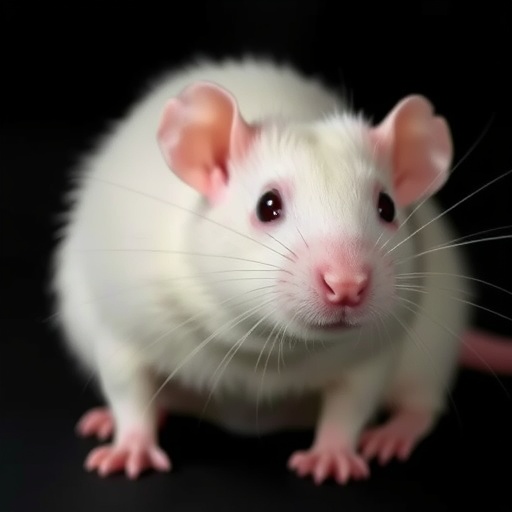In an intriguing new study, researchers have unveiled the potential of betaine as a therapeutic agent for relieving symptoms associated with letrozole-induced polycystic ovarian syndrome (PCOS) in a rat model. This research, conducted by Babaeenezhad and colleagues, offers promising insights into the mechanisms through which betaine can counteract the oxidative stress and inflammation that characterize PCOS. With an increasing number of individuals experiencing PCOS, identifying effective treatment strategies is of paramount importance, particularly given the current limitations of conventional therapies.
Polycystic ovarian syndrome is a multifaceted condition affecting numerous women globally, often manifesting as hormonal imbalances, irregular menstrual cycles, and fertility challenges. It is characterized by enlarged ovaries with numerous small cysts on the outer edges. The etiology of PCOS is complex and remains not fully understood; however, it is speculated that a combination of genetic, hormonal, and environmental factors plays a role. Recent advances in research have shed light on the underlying pathophysiology of the disorder, paving the way for innovative treatment approaches, including dietary interventions.
Letrozole, a medication primarily used to treat hormone receptor-positive breast cancer, has been widely employed in preclinical models to induce symptoms similar to those observed in PCOS. This model allows researchers to explore therapeutic interventions in a controlled setting. Specifically, letrozole treatment in rats has been shown to result in altered ovarian morphology, elevated androgen levels, and disrupted menstrual cycles, effectively mimicking many symptoms faced by women with PCOS.
In the presented study, the primary aim was to evaluate the effects of betaine on oxidative stress and the inflammatory responses observed in letrozole-treated rats. Oxidative stress arises when there is an imbalance between the production of reactive oxygen species and the body’s ability to detoxify these harmful compounds. This imbalance can lead to cellular damage, contributing to the pathogenesis of various diseases, including PCOS. Notably, the study hypothesized that betaine could ameliorate these pathological processes by re-establishing homeostasis.
The experimental design involved the administration of betaine to letrozole-treated rats for a specified duration. Researchers meticulously monitored various parameters related to oxidative stress, inflammation, and ovarian function. By measuring levels of reactive oxygen species and markers of inflammation, the researchers could assess the extent to which betaine supplementation exerted a protective effect against the detrimental changes induced by letrozole.
Furthermore, the study delved into the interplay between cellular proliferation and apoptosis, processes that are often dysregulated in PCOS. Maintaining a balanced proliferation-apoptosis equilibrium is crucial for optimal ovarian function. Researchers investigated how betaine influenced these pathways in the ovaries of the experimental rats, aiming to determine whether its administration could restore this balance.
The findings of this study were compelling. Betaine treatment was associated with a significant reduction in oxidative stress markers, indicating its potential as a powerful antioxidant. Additionally, there was a notable decrease in inflammatory markers, suggesting that betaine could mitigate the inflammatory response commonly observed in PCOS. These results are particularly exciting, as chronic inflammation is recognized as a key contributor to the development and progression of PCOS.
Moreover, the observed restoration of the proliferation-apoptosis balance is especially relevant to the ovarian health of women affected by PCOS. An imbalance in these processes often leads to the formation of cysts, irregular ovulation, and ultimately, fertility issues. By addressing these critical pathways, betaine emerges as a viable candidate for further exploration as a therapeutic agent in the management of PCOS.
In light of these findings, further research is warranted to explore the broader implications of betaine supplementation in humans. Participants in clinical trials will need to be closely monitored to assess the efficacy and safety of betaine in this context. Future studies should aim to elucidate the optimal dosing regimen, as well as any potential long-term effects associated with its use.
The work of Babaeenezhad and colleagues underscores the importance of investigating dietary and supplemental interventions in the management of complex health issues like PCOS. It emphasizes the necessity for a multi-faceted approach to treatment, where lifestyle modifications are integrated with pharmacological therapies. Such strategies can empower individuals with PCOS to take charge of their health and improve their quality of life.
In conclusion, this study not only provides exciting insights into the role of betaine in managing letrozole-induced PCOS in rats but also raises hope for future applications in human health. By exploring natural compounds in the treatment landscape, researchers are taking significant steps toward addressing the unmet needs of those affected by PCOS. As more data become available, the potential role of betaine in promoting ovarian health and mitigating the symptoms of PCOS may soon be illuminated further.
The landscape of PCOS treatment is shifting, and this study advocates for renewed interest in the therapeutic potential of dietary supplements. As researchers continue to unravel the intricacies of hormonal disorders, such insights could lead to pioneering strategies that prioritize patient well-being through both modern medicine and dietary interventions.
Subject of Research: Investigation of betaine’s effects on oxidative stress and inflammation in a rat model of letrozole-induced polycystic ovarian syndrome
Article Title: Betaine alleviates letrozole-induced polycystic ovarian syndrome in rats by regulating oxidative stress and inflammation and restoring the proliferation-apoptosis balance.
Article References:
Babaeenezhad, E., Farzane Yegane, D., Yarahmadi, S. et al. Betaine alleviates letrozole-induced polycystic ovarian syndrome in rats by regulating oxidative stress and inflammation and restoring the proliferation-apoptosis balance.
J Ovarian Res 18, 261 (2025). https://doi.org/10.1186/s13048-025-01826-9
Image Credits: AI Generated
DOI: https://doi.org/10.1186/s13048-025-01826-9
Keywords: Polycystic ovarian syndrome, betaine, oxidative stress, inflammation, rat model, proliferation-apoptosis balance.




